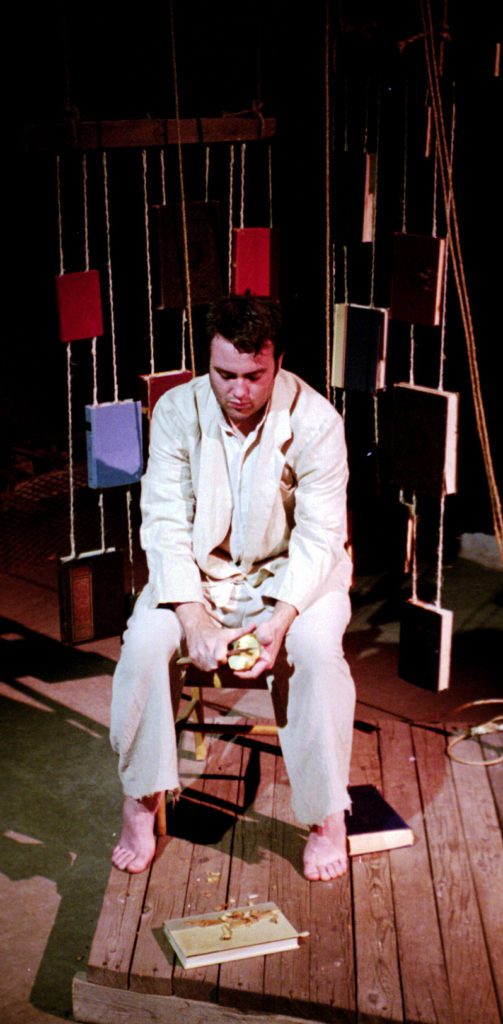Buntport Theatre takes its style of transformative theater to a deeper level with Ward No. 6, an adaptation of the Anton Chekhov novella.
As in Buntport’s earlier plays, no prop or set piece exists without purpose. Here, though, the performers themselves are transformed, slipping in and out of, and even sharing, multiple roles.
In a dark, untended mental hospital, patients languish under the inattentive care of a smug doctor. The patients include both the insane and the merely difficult, and none have a chance of release.
Always visually interesting, Ward No. 6 skates over some of Chekhov’s themes. Ivan bores his friend with political furies before he is committed, but there’s no further discussion of the possibility of political imprisonment. And while the hospital is unpleasant, it’s not quite a prison, a connection Chekhov draws early with the description, “a desolate, Godforsaken look which is only found in our prison and hospital buildings.”
The seven members of Buntport — Samantha Schmitz, Brian Colonna, Erin Rollman, Hannah Duggan, Erik Edborg and Matthew Petraglia — wrote the play, and all but Schmitz and Petraglia perform in it. Colonna alone sticks to a single role, that of the doctor who eventually despairs at the empty repetition of his life and the hypocrisy of his work. Amazingly, the constant switching of characters among the other three actors never confuses as they deftly keep the audience up to speed.
As with Buntport’s other works, Ward No. 6 provides constant visual interest. A corner of the warehouse theater is used as the stage, constructed of wooden pallets for an off-kilter floor. Plaster casts, rows of books and furniture hang on ropes attached to pulleys and are lowered or raised as the scenes dictate. Visual effects expressing the story’s themes would have made the evening truly transforming.
-Lisa Bornstein, August 10, 2001, Rocky Mountain News
